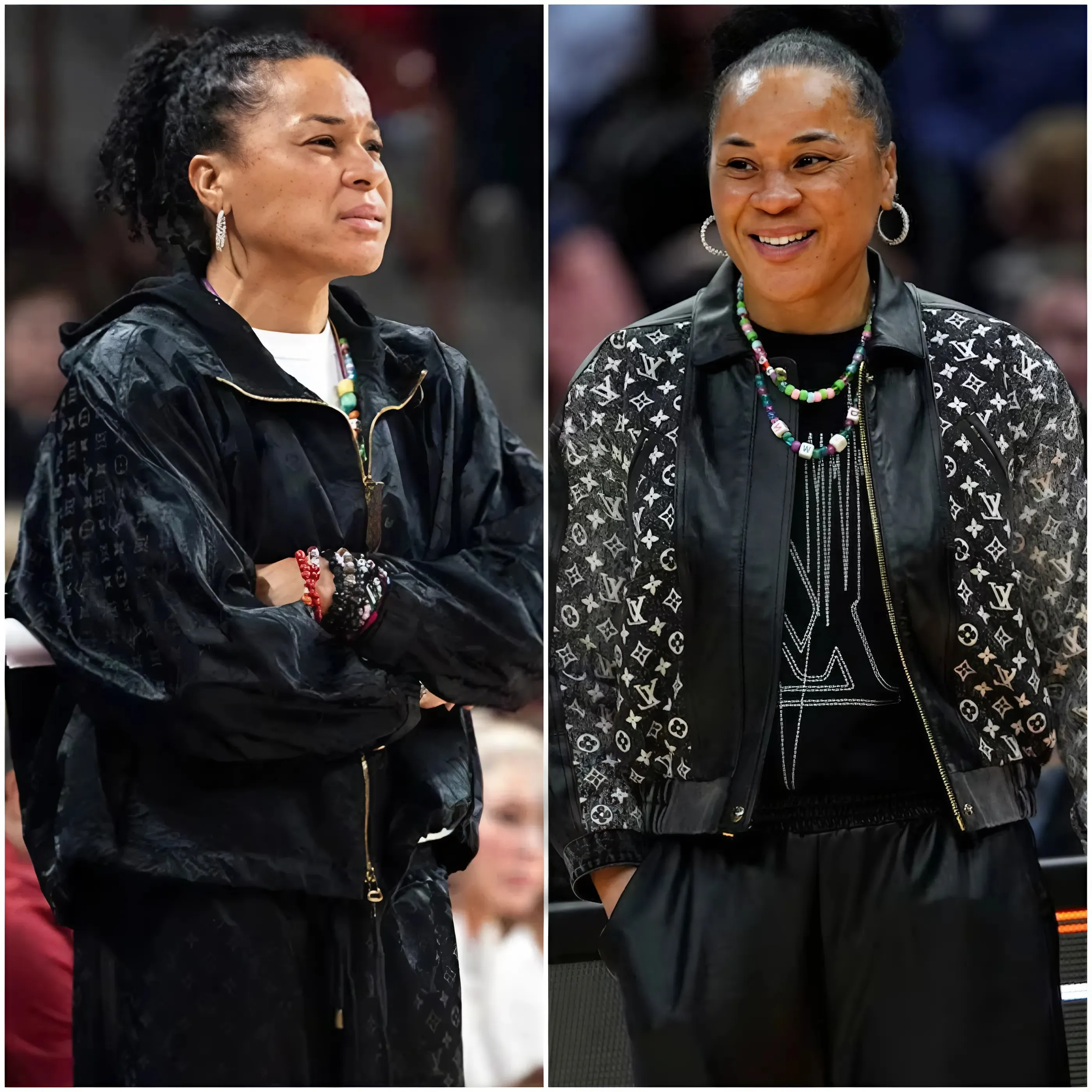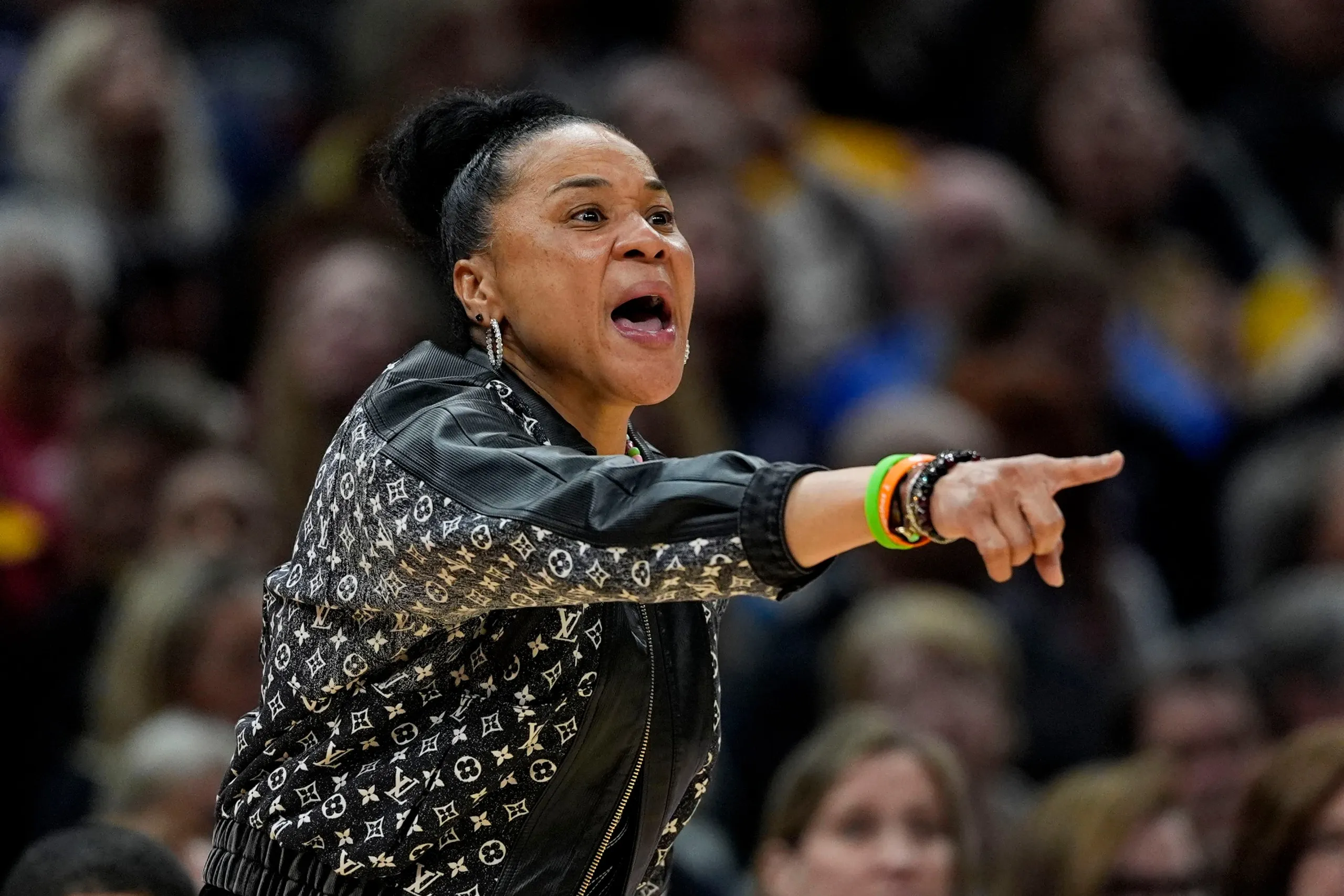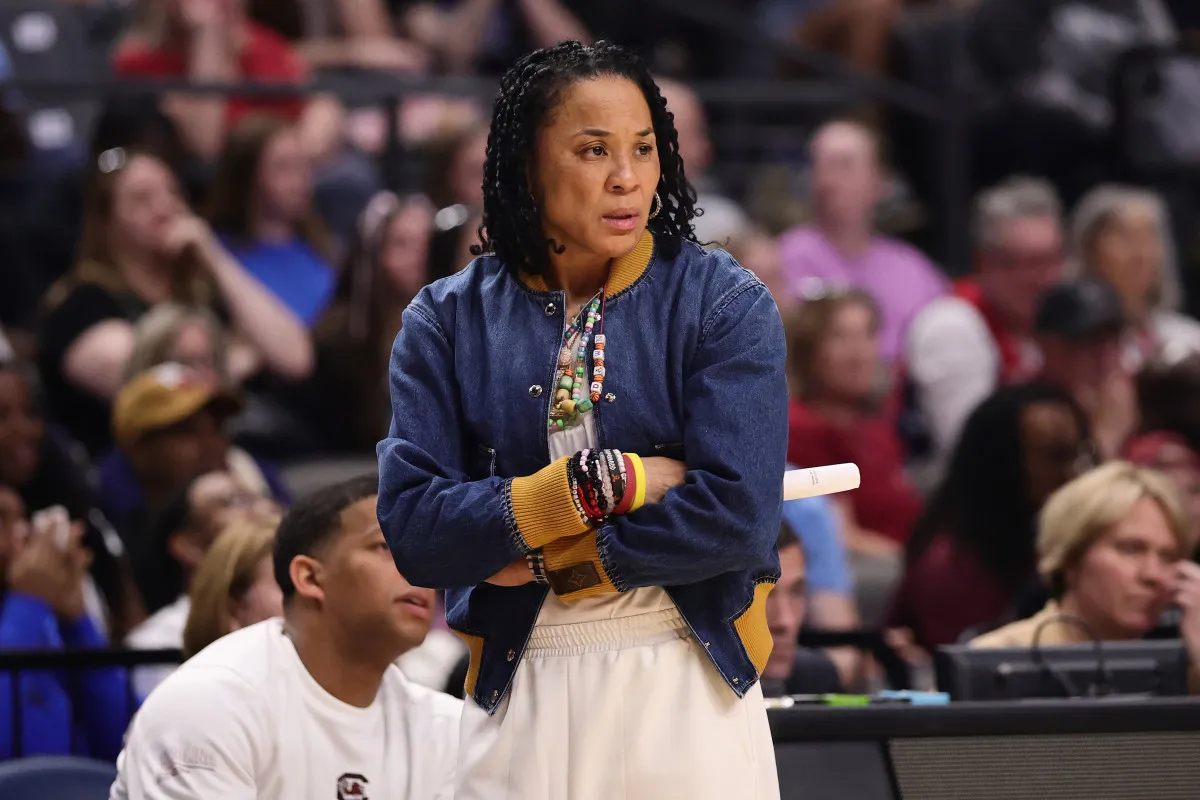Recently, a significant controversy has rocked the world of college basketball, with South Carolina’s head coach, Dawn Staley, at the center of the storm. Seven NCAA teams have publicly expressed their gratitude towards Maryland’s coach for allegedly “exposing” Staley, resulting in a wave of criticism and potential damage to South Carolina’s prestigious basketball program. While the details remain unclear, the implications for both Staley and South Carolina are profound.

The incident unfolded when Maryland’s head coach made comments that allegedly shed light on Staley’s actions during a high-profile game earlier in the season. These remarks were immediately seized upon by critics, many of whom have questioned Staley’s conduct and the practices within the South Carolina program. The fallout has been swift, with multiple teams in the NCAA expressing support for the Maryland coach, suggesting that the situation might have been handled improperly behind the scenes.
The situation is particularly sensitive due to Staley’s standing in the basketball community. As one of the most respected and successful women’s basketball coaches in the country, her reputation has been built on a foundation of excellence and sportsmanship. South Carolina’s women’s basketball team, under her leadership, has been a dominant force in the NCAA, regularly competing for national championships. However, the recent accusations have raised questions about the integrity of their program, potentially casting a shadow over their past and future successes.
For the NCAA teams that have come out in support of Maryland’s coach, the situation represents an opportunity to hold Staley and her program accountable. Some critics argue that the actions allegedly exposed by the Maryland coach were harmful to the spirit of fair competition, and they believe it is necessary for the basketball community to address such behavior head-on. Others, however, view this as an orchestrated attack against one of the sport’s most successful and influential figures.
The damage to South Carolina’s reputation could extend beyond this single controversy. With seven NCAA teams publicly expressing their thanks to the Maryland coach, it’s clear that the issue has sparked a wider debate about ethics, competition, and transparency in college basketball. This backlash may influence recruits, sponsors, and fans who have long supported Staley’s leadership and her commitment to building a top-tier program.

While the outcome of this situation remains uncertain, it is clear that the ramifications will be felt across the college basketball landscape. The next steps for South Carolina and Dawn Staley will depend on how they address these allegations and rebuild trust within the NCAA community. Until then, the controversy will undoubtedly continue to generate headlines, with questions surrounding sportsmanship, leadership, and the integrity of college basketball.